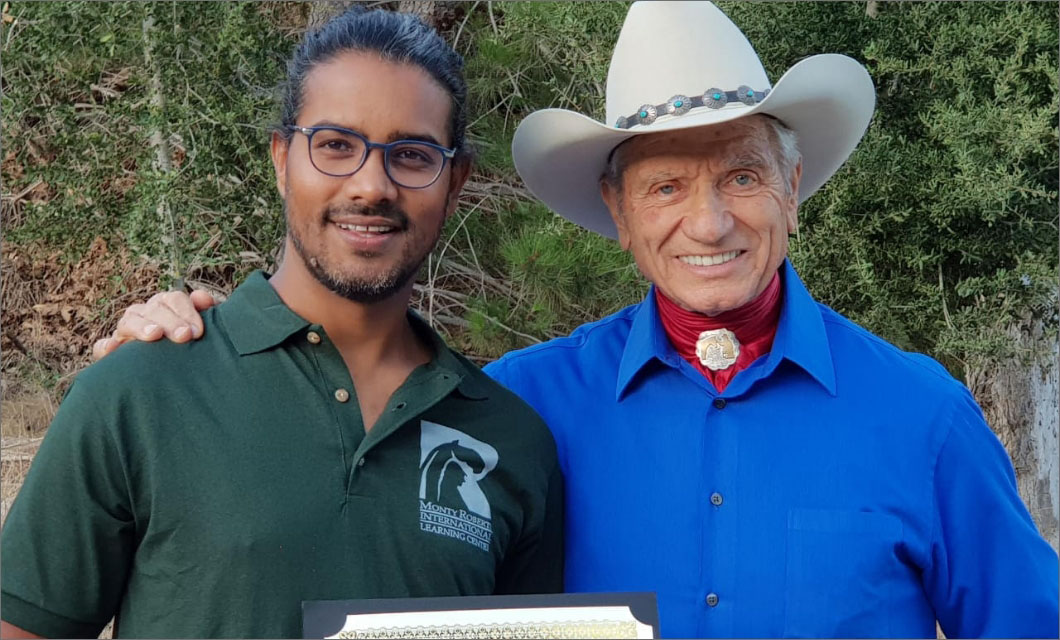Natural Horsemanship with Manjeev Chaudhary
Learn the empathetic way of natural horsemanship with expert feedback and proven results

He and his wife have worked towards horse welfare and have rescued horses. They have highlighted how owners often do not know how to care for their horses. LA POLO asked if this is an issue as horses might be used as a means of transport and labour – and owning a horse for pleasure is not the reality for the majority of Indians.
He is convinced that “it can be done in this country better than any other, because caring for an animal is in our culture, from domestic help to worshiping - we have animals in every part of our history and epics. When you talk to them, you will understand quickly that the owner loves his animal, and the reason for the ill-treatment or condition of the animal is either superstitious customs or lack of education. We can help them by educating them; we can also help them with better tools. We can tell them how bad the spiky bit is and they should use softer bits instead. Also, we can teach them how to spot lameness. It doesn’t matter how small the effect/change/education is, all that matters is the positive effect,” says Manjeev. Depending on the kind of trauma the horse has suffered, it can take quite some time to undo the harm, especially since horses have an incredible memory. Manjeev speaks from experience since 80% of their horses are rescued. “They don’t forget, hence I don’t think they ever overcome their traumatic experience, but what we can do is help them handle the trauma and make them more confident. Because they are associative thinkers, it (trauma) will come back to them whenever there is a similar situation, which created the trauma initially.”
 Image credit: Delhi College of Photograohy
Image credit: Delhi College of Photograohy
When we talk about horse psychology as a training method, we have to ask its effect on the game. “It definitely affects the sport when you understand horse psychology, not in terms of quality of sports, because the quality of sports depends on how good a horseman you are,” he adds. He agrees that training might be time-consuming because one needs to make the horse comfortable with the equipment. “If your horse is confident by nature, he will gain knowledge quicker”. No matter how much we try to be considerate to our equine companions, can we be absolutely cruelty-free towards them? Manjeev observes that “violence/pain cannot be a source of productivity in any shape.” There should be a choice, he says, “there can be some horses that will not learn a particular equine discipline and may be better in other disciplines, so we have this responsibility to not push them for something they don't enjoy or are comfortable with, but rather find out what they like/willing to do more.”
Manjeev shares with LA POLO an anecdote of his early days in horse training. “I was terrified with the idea of training wild/untouched Mustangs when I was in California. I saw them flinging themselves and going up in the air to defend themselves. You can imagine how terrifying for me the thought to be with them inside the pen was and then I would have to touch them, halter them and lead them! But when you are there in the pen with them as part of their herd, as their partner, and fully aware of what they do in what situation, it all becomes harmonious. So I approached the Mustang, he flipped for his life and I flipped for mine, I still sometimes feel the butterflies in my stomach.” But not the one to back down, he gradually built trust with the horse. It proves that with love and trust, anything can be achieved.
Natural horsemanship is gaining momentum in recent years. We ask if it’s a fad or a gradual but definite change towards a cruelty free co-existence with horses. “These training methods have been popular in some parts of the world for over five decades. I work with racehorses as well. I start them, give them the experience of their first saddle and their first rider. Because this is a happy memory, the horse will be more confident in its equestrian tasks.” Manjeev tells LA POLO (with a hint of deserving pride, we suppose) that being the only Asian to be certified as a Monty Roberts instructor is indeed a precious feeling, and he has embraced Monty’s motto “to leave this world a better place for horses and humans”.

